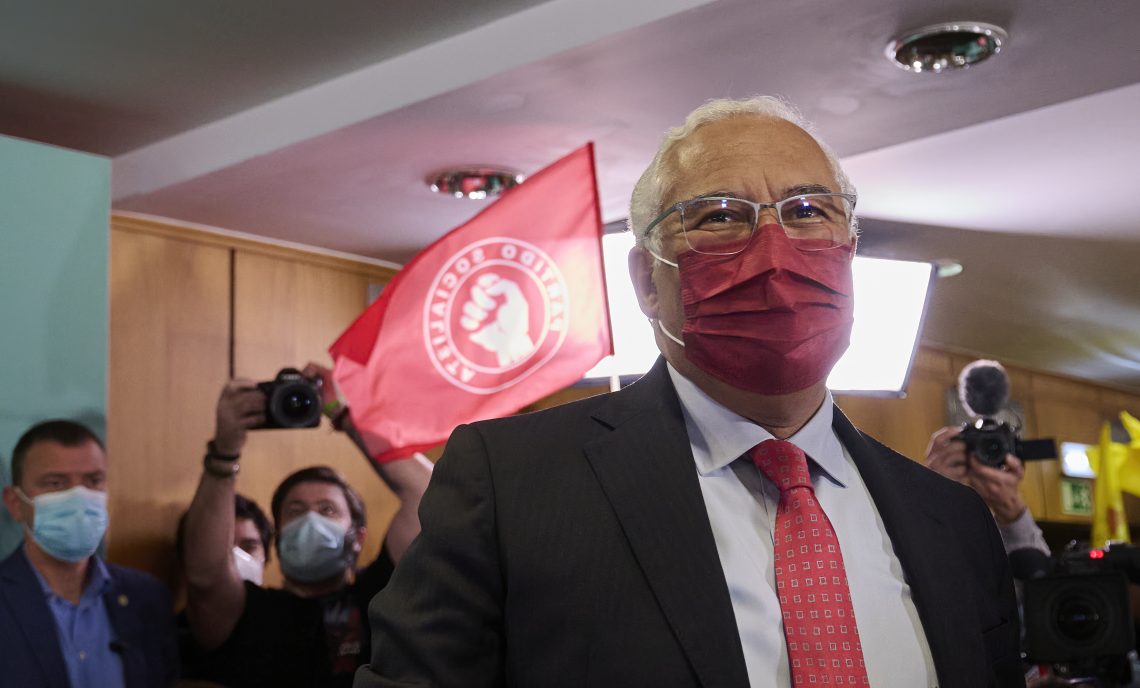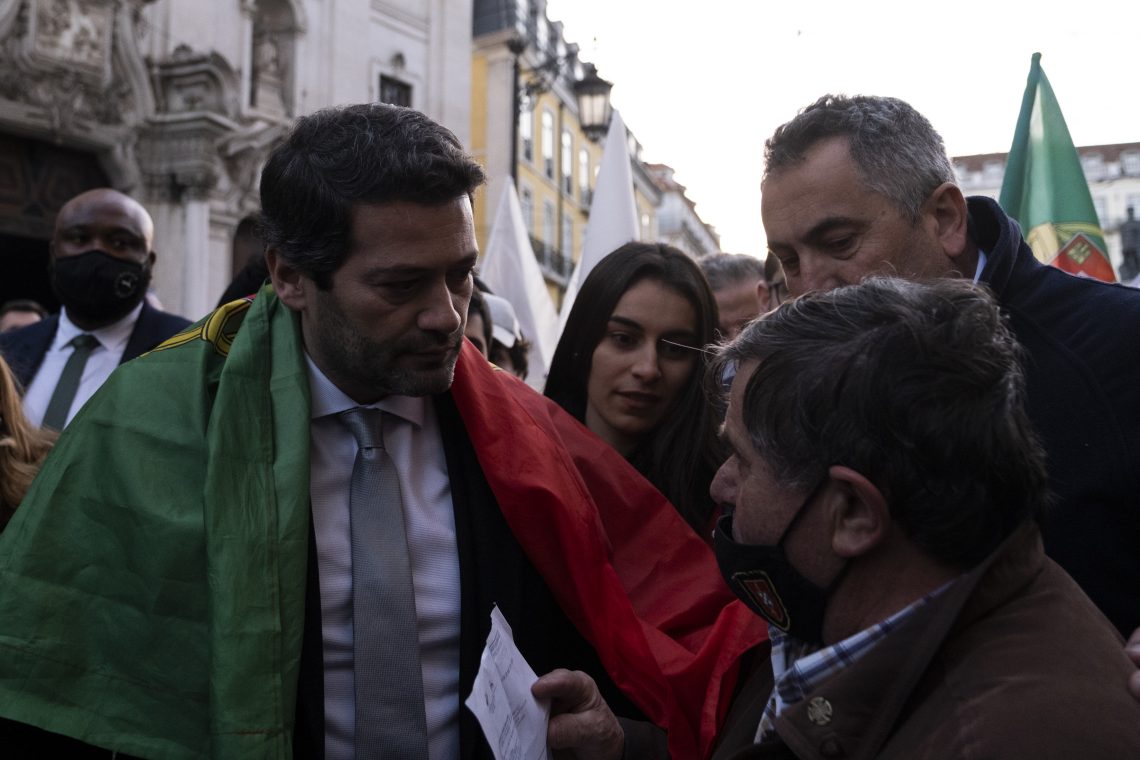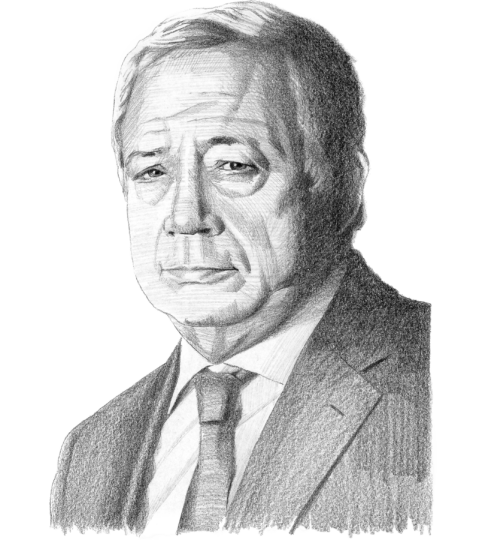Political shifts in Portugal
After a political crisis in parliament, Portugal’s snap elections resulted in an unexpected majority for the Socialist Party.

In a nutshell
- The Socialist Party can now rule without relying on allies
- Portuguese voters are switching allegiances
- The extreme left has completely collapsed
An anticipated general election took place in Portugal on January 30 following a crisis over the budget of the Socialist government of Prime Minister Antonio Costa. With both the left and the right in favor of rejecting the budget, President Marcelo Rebello de Sousa dissolved the parliament and called for elections. On the eve of the vote, most polls showed the Socialists (PS) and the Social Democrats (PSD) neck and neck, at around 34 or 35 percent each. The results, however, were shockingly different.
The PS won 41.5 percent of the vote, electing 119 representatives out of 230 seats. Rui Rio’s PSD received 27.8 percent of the vote and 73 seats. The result is enough to cast doubt on the reliability of polling institutes in Portugal, especially since another recent election forecast for a municipal election in Lisbon had also been completely off.
Ideologically, there were no major differences between the two parties’ programs. Mr. Rio was seen, even within his party, as a man on the center-left. Unlike the majority of PSD MPs, he is in favor of legal abortion and euthanasia, which may have cost him conservative support in the elections.
Other winners and losers
The two parties of the extreme-left, the Communist Party (PCP) and the Left-wing Bloc (BE), also suffered a serious defeat. A significant part of their electorate is believed to have voted PS. By predicting a tie between PS and PSD, the polls are likely to have pushed voters on the left to vote for PS to avoid what they perceived as “a right-wing victory.” The same is likely to have happened on the right side of the political spectrum, but on a much smaller scale.
For the extreme left, the election was a serious defeat.
Another winner of the election was Chega, a nationalist party sometimes described by its critics as extreme-right populist. Its leader, Andre Ventura, is a former PSD militant who left to found Chega in April 2019, establishing political relations at the European level with Italy’s Fratelli d’Italia, France’s Rassemblement National and Spain’s Vox. Only six months later, Mr. Ventura was elected as Chega’s sole deputy in the Portuguese parliament.
His program for the January 2022 elections, “God, Country, Family and Labor,” was attacked by the left and the liberal elites as being a Portuguese take on the new populist right. But Chega performed well, earning 7.15 percent of the vote and 12 MPs.
The Liberal Initiative (IL), a new pro-market and anti-socialist party, also fared well in the elections, with 5 percent of the vote and eight MPs. They are socially liberal: pro-choice, pro-euthanasia, and in favor of gay marriage and adoption. Their voters are mostly middle-class and upper-middle-class professionals in big urban centers like Lisbon and Porto, unlike Chega’s constituency, which is more evenly distributed throughout the country.
The Democratic and Social Center (CDS) suffered a major blow: with 1.61 percent of the vote, they could not elect a single MP, not even the party’s young leader Francisco Rodrigues dos Santos. Internal dissensions may be behind the defeat of the long-established party.

A country on the left
Portugal is one of the most left-wing countries in the EU. After the military coup of April 1974, decolonization and the nationalization of the country’s main companies took place in a climate of extreme-left radicalism. Since then, Portugal’s political spectrum has been dominated – except for short periods of center-right rule – by the left.
Portugal has had the same borders in Europe since the 13th century and faces neither national identity problems nor religious or ethnic dissent. Because it has not experienced significant culturally-alien immigration like France or regional separatism like Spain, Portugal has not been affected by the issues that have led to a surge of new right-wing nationalism in European countries.
In today’s Europe, two distinct ideological right-wing branches have emerged. One is national conservative, like the Polish Law and Justice or the Hungarian Fidesz. The other is more identitarian and national populist like the French Rassemblement National, or the Italian Fratelli d’Italia.
Business circles now hope that, since he no longer needs the approval of the left, Antonio Costa will focus on realistic economic policy to reverse the current economic decline.
These parties’ popularity is a reaction to many factors, including the EU’s push for more centralized powers, uncontrolled immigration, large-scale corruption and the left’s agenda of radical political correctness. But in Portugal, the left has long dominated the cultural and political scene. Despite a long list of scandals involving important members of the PS and PSD, the two parties have led Portugal since 1976.
Chega, a new right-wing force
Like elsewhere in Europe, Portugal’s traditional right-wing parties failed to tackle uncontrolled immigration, deindustrialization and the left-wing monopoly on cultural matters. The Chega party gained popularity because it addressed these issues.
Early on, Mr. Ventura focused his rhetoric on criticizing what he depicted as “privileged minorities,” like the Roma people, (here called ciganos) and also in law-and-order issues like chemical castration for sex offenders. He was elected to parliament with 70,000 votes in October 2019. In January 2021, he received nearly half a million votes (12 percent) in the presidential elections. Last month’s results only confirm that the party and its leader are ascendant.
Chega’s rise was bitterly criticized by the left and liberal media outlets. The new party was accused of being fascist and racist, and its leader’s ideology was compared to that of the authoritarian Antonio de Oliveira Salazar.
The party’s most recent political program emphasizes national identity, family values, market economy as well as law and order.
Scenarios
As is traditional in Portuguese politics, the “Centrao” (Big Center) – the political space that extends from the Socialists on the left to the PSD on the right – remains dominant, gaining 70 percent of the vote. Radical leftists and communists suffered a serious setback, and the right is split between Chega and IL.
Mr. Costa is a moderate Socialist who accepted a leftist agenda from his PCP and BE allies of the PCP in 2015 so as to stay in power. With an absolute majority, he no longer needs them. His cabinet included different views, ranging from the moderate and pro-market Economy Minister Siza Vieira to the more leftist Minister of Infrastructure Pedro Nuno Santos.
Prime Minister Costa has always been careful to appear as a conciliator, avoiding leftist and “anti-fascist” rhetoric. His government was relatively successful at keeping the pandemic in check. But, compared to other EU states, the country is losing ground economically. Business circles now hope that, since he no longer needs the approval of the left, Antonio Costa will focus on realistic economic policy to reverse the current economic decline.
The crisis in the CDS-PP and the frustration of PSD voters with the ideological volatility of the party leadership could lead more voters to turn to Chega and IL.
The PSD faces a dilemma: it could take a turn to the right, in an attempt to win back voters from IL and Chega, but this could also mean losing centrist voters. If it persists in its ideological vagueness, it will progressively lose voters to the two new right-wing parties. But, having lost the elections, the PSD will face four years in the opposition. This time could allow ambitious new candidates to reach leadership positions and renew the party.
For the extreme left, the election was a serious defeat. Together PCP and BE have fewer MPs (11) than Chega alone. PAN, an environmentalist and animal rights party, was reduced to one MP.
After its electoral disaster, BE will try to take advantage of its influence in media and academia to decry the dangers of the “extremist” and “racist” Chega – even if, of the two members of parliament that are not Caucasian, one, Gabriel Mitha Ribeiro, is vice president of the Chega party.
With no significant representation in parliament, PCP is likely to leverage its remaining influence in labor unions, for example in transport, to dissuade the PS government from implementing certain reforms.








